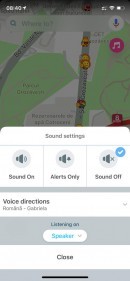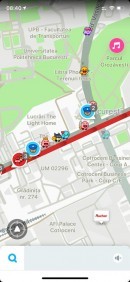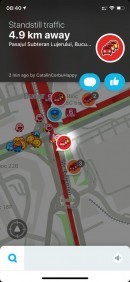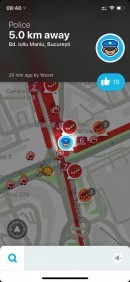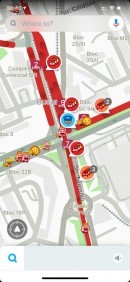The popularity of apps like Google Maps and Waze keeps growing, and it’s all because drivers are always looking for ways to beat traffic jams and find a faster route to their destination.
But while these apps come in handy for drivers, they are bad news for quiet areas in large cities, especially because they often send cars on small roads that only residents were using before.
London, for example, is the best example, as the car traffic on quiet C roads has doubled since 2008, and many blame Waze for the whole thing.
While the number of cars has also increased since 2007 from 27 million cars in the United Kingdom to 38.3 million today, local authorities say a mix of factors led to a massive increase in traffic on quiet roads. These factors include home shopping, van-based home services, and apps used to avoid traffic congestion, the Department for Transport was quoted as saying by The Guardian.
Waze, on the other hand, emphasizes that the current road infrastructure wasn’t built to handle such a high number of cars, and what the app does is only send vehicles on routes they are legally allowed to use.
“Roads and streets weren’t built for the volume of cars that exist today. On average, the number of vehicles on UK roads has increased by 594,000 per year since 2012, and road networks have struggled to keep up with this increase. Waze routes its users through the public roads infrastructure, based on local driving laws and the road signs in the area,” a company spokesperson said.
Active travel charity Living Streets, however, accuses Waze of “wreaking havoc on our streets,” as these applications send cars on roads that weren’t built to handle such a high volume of traffic.
Needless to say, the easiest way to deal with the whole thing is for authorities to set traffic restrictions on C roads, as apps like Waze only send drivers on routes they are allowed to use. If a specific residential road is restricted, Waze then provides an alternative route.
London, for example, is the best example, as the car traffic on quiet C roads has doubled since 2008, and many blame Waze for the whole thing.
While the number of cars has also increased since 2007 from 27 million cars in the United Kingdom to 38.3 million today, local authorities say a mix of factors led to a massive increase in traffic on quiet roads. These factors include home shopping, van-based home services, and apps used to avoid traffic congestion, the Department for Transport was quoted as saying by The Guardian.
Waze, on the other hand, emphasizes that the current road infrastructure wasn’t built to handle such a high number of cars, and what the app does is only send vehicles on routes they are legally allowed to use.
“Roads and streets weren’t built for the volume of cars that exist today. On average, the number of vehicles on UK roads has increased by 594,000 per year since 2012, and road networks have struggled to keep up with this increase. Waze routes its users through the public roads infrastructure, based on local driving laws and the road signs in the area,” a company spokesperson said.
Active travel charity Living Streets, however, accuses Waze of “wreaking havoc on our streets,” as these applications send cars on roads that weren’t built to handle such a high volume of traffic.
Needless to say, the easiest way to deal with the whole thing is for authorities to set traffic restrictions on C roads, as apps like Waze only send drivers on routes they are allowed to use. If a specific residential road is restricted, Waze then provides an alternative route.

